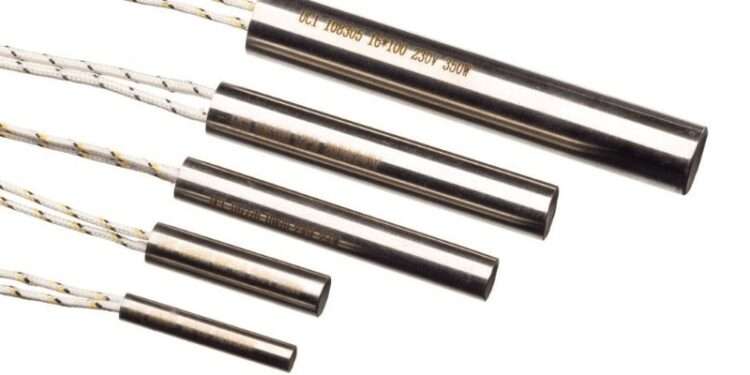When you think about clean energy technologies like fuel cells, cartridge heaters might not immediately come to mind. But these small, unassuming devices are quietly playing a big role in keeping fuel cells efficient, reliable, and ready to power a sustainable future. Let’s dive into how cartridge heaters bridge the gap between precision heating and groundbreaking energy solutions in ways you may not expect.
Providing Precise Heat to Maintain Optimal Fuel Cell Efficiency
Fuel cells thrive on balance. The chemical reactions powering them need specific temperature ranges to work effectively. That’s where cartridge heaters come in, providing the precision heating necessary to maintain those optimal conditions.
Unlike other heating methods, quality cartridge heaters are designed to deliver consistent and localized heat. In a fuel cell, this can mean the difference between an efficient energy conversion process and one riddled with inefficiencies. Reliable cartridge heaters ensure every component operates at the perfect temperature, allowing the fuel cell to deliver peak performance without hiccups.
Precision heating isn’t just about keeping the system running—it’s about improving efficiency. By maintaining stable temperatures, cartridge heaters reduce energy waste and allow fuel cells to generate power with maximum output and minimal loss.
Also, Read: Top Instagram Trends to Watch in 2024
Enhancing Reaction Rates by Stabilizing Critical Operating Temperatures
Chemical reactions in a fuel cell are temperature-sensitive, meaning that even minor fluctuations can slow down the process or disrupt it entirely. Cartridge heaters play a vital role in stabilizing these critical temperatures, ensuring the reactions occur as efficiently as possible.
When reliable cartridge heaters are used, the heat distribution within the fuel cell system becomes highly controlled. This stability accelerates the reaction rates, making the conversion of chemical energy into electrical energy faster and more efficient. Faster reactions mean a quicker and more consistent energy supply, which is especially important in applications where reliability is key.
Furthermore, maintaining these temperatures with consistent heat reduces wear and tear on the system. Over time, this prolongs the lifespan of the fuel cell while keeping maintenance needs and costs to a minimum.
Supporting Compact Designs with Space-efficient Heating Solutions
Modern fuel cells are often compact by necessity, designed to fit into smaller spaces while maintaining their efficiency. Cartridge heaters are an ideal match for these systems, offering powerful heating in a compact and space-efficient form.
Unlike bulkier heating systems, quality cartridge heaters can fit seamlessly into tight spaces without sacrificing performance. Their design allows them to be embedded directly into components, which is particularly useful in compact fuel cells where space is at a premium.
This versatility makes cartridge heaters an indispensable tool in the development of portable and scalable fuel cell technologies. Whether in automotive applications or small-scale power systems, their compact nature enables innovative designs that wouldn’t be possible with traditional heating solutions.
Reducing Energy Loss Through Targeted Thermal Management
One of the biggest challenges in energy systems is managing heat effectively to reduce waste. Fuel cells are no exception, and here again, cartridge heaters prove their worth by offering targeted thermal management.
Unlike broader heating systems that might warm unnecessary areas, cartridge heaters focus heat exactly where it’s needed. This level of precision minimizes energy loss, ensuring that the power generated by the fuel cell isn’t wasted on heating inefficiencies. Reliable cartridge heaters help optimize this process, keeping the energy focused on powering systems rather than compensating for poor thermal management.
By reducing energy loss, fuel cells can operate more sustainably. Every watt saved through better heating management translates to greater overall efficiency and a lower environmental impact, aligning perfectly with the goals of clean energy technologies.
Ensuring Reliability in Demanding Fuel Cell Environments
Fuel cells often operate in challenging conditions, from fluctuating temperatures to heavy usage demands. In such environments, heating components must be as reliable as the systems they support. Cartridge heaters meet this challenge head-on, offering durability and consistent performance under tough conditions.
Whether it’s the rugged demands of industrial fuel cells or the precision needed in automotive applications, reliable cartridge heaters deliver the stability these systems require. Their robust construction ensures they can withstand the physical and thermal stresses common in fuel cell environments without compromising performance.
This reliability isn’t just about maintaining heat. It’s also about ensuring the entire system functions smoothly. A failure in the heating element could lead to inefficient operation or even system shutdowns, making quality cartridge heaters a key component in the long-term success of fuel cells.

Aligning Advanced Heating Technologies with Sustainable Energy Goals
As the world moves toward cleaner energy solutions, technologies that support sustainability are more critical than ever. Cartridge heaters are quietly contributing to this movement by enabling fuel cells to operate efficiently and reliably.
By providing precision heating, reducing energy loss, and supporting compact designs, cartridge heaters enhance the overall performance of fuel cells. These advancements directly align with the broader goals of reducing carbon emissions and developing sustainable energy systems. Reliable cartridge heaters are more than a technical solution—they’re part of the push toward a greener future.
Their adaptability also positions them as a key player in the evolving energy landscape. As fuel cell technology continues to advance, so too will the role of cartridge heaters in supporting innovative designs and more efficient systems.

















